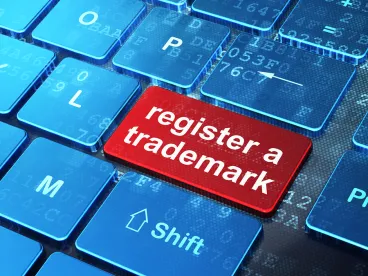Revisiting jurisprudence touching on the Lanham Act and the First Amendment from the Supreme Court’s decisions in Matal v. Tam and Iancu v. Brunetti, the US Court of Appeals for the Federal Circuit held that applying Sec. 2(c) of the Lanham Act (which bars registration of a trademark that consists of or comprises a name of a particular living individual without their written consent) may, in certain instances, unconstitutionally restrict free speech in violation of the First Amendment. In this instance, the Federal Circuit found that the Trademark Trial & Appeal Board’s (Board) refusal to register the trademark “TRUMP TOO SMALL” for use on t-shirts involved content-based discrimination that was not justified by a compelling or substantial government interest. In re: Steve Elster, Case No. 20-2205 (Fed. Cir. Feb. 24, 2022) (Dyk, Taranto, Chen, JJ.)
Steve Elster filed a US trademark application in 2018 for the mark “TRUMP TOO SMALL” (a reference to a 2016 Republican presidential primary debate exchange between then- candidate Donald Trump and Senator Marco Rubio (R-FL)) for use on shirts. The US Patent & Trademark Office (PTO) examining attorney, and subsequently the Board, refused registration of the mark on grounds that it clearly referred to former President Trump, and that Elster did not have written consent to use former President Trump’s name in violation of Sec. 2(c) of the Lanham Act. Sec. 2(c) requires such consent when a trademark identifies a “particular living individual.” Elster argued that his trademark aimed to convey that some features of former President Trump and his policies were diminutive and appealed the Board’s holding that Sec. 2(c) is narrowly tailored to advance two compelling government interests, namely, protecting an individual’s rights of privacy and publicity and protecting consumers against source deception.
The Federal Circuit started with a brief primer on relatively recent decisions in which the Supreme Court found certain provisions of Sec. 2(a) to be improper viewpoint discrimination because they barred registration of trademarks that were disparaging or comprised of immoral or scandalous matter. The Federal Circuit found that while neither Tam nor Brunetti resolved Elster’s appeal pertaining to Sec. 2(c), the cases did establish that a trademark represents private, not government, speech entitled to some form of First Amendment protection, and that denying a trademark registration is akin to the government disfavoring the speech being regulated. The Court then examined whether Sec. 2(c) could legally disadvantage the specific “TRUMP TOO SMALL” speech at issue in Elster’s case, and whether the government has an interest in limiting speech on privacy or publicity grounds if that speech involves criticism of government officials.
The Federal Circuit did not decide the matter on whether a trademark is a government subsidy, avoiding the somewhat varying opinions of the Supreme Court on that issue. Instead, the Federal Circuit found that Elster’s mark constituted speech by a private party for which the registration restriction must be tested by the First Amendment. Regardless of whether strict or intermediate scrutiny is applied to viewpoint-neutral, content-based restrictions in the trademark arena, the Court explained that there must be a substantial government interest in the restriction.
Noting that a “major purpose” of the First Amendment is to protect the free discussion of governmental affairs, the Federal Circuit examined the government’s asserted right of privacy as its interest in restricting speech, and found “no plausible claim that President Trump enjoys a right of privacy protecting him from criticism in the absence of actual malice,” i.e., the publication of false information with knowledge of its falsity or reckless disregard for the truth. On this issue, the Court held that the government had no legitimate interest in protecting the privacy of former President Trump, “the least private name in American life.”
The Federal Circuit explained that the government’s interest in protecting the right of publicity involves a more complex analysis, given that the government “of course” has an interest in protecting against copying or misappropriation of a trademark or other forms of intellectual property. In this case, however, the government made no claim that former President Trump’s name was being misappropriated in a manner that exploited or diluted the commercial value of his name or caused confusion with an existing trademark. The Court noted the absence of any claim that the “TRUMP TOO SMALL” mark invoked a suggestion that former President Trump had endorsed Elster’s products—which essentially would amount to a refusal under the false association clause of Sec. 2(a) of the Lanham Act. The Board did not base its refusal on Sec. 2(a) grounds, and the government did not raise Sec. 2(a) on appeal. Instead, the Court explained that the right of publicity is constrained when speech critical of a public official is involved and the government has no valid publicity interest that could overcome the First Amendment protections afforded to the political criticisms found in Elster’s trademark.
The Federal Circuit therefore concluded that the government does not have a privacy or publicity interest in restricting speech critical of government officials or public figures in the trademark context, “at least absent actual malice.” It found that the Board’s application of Sec. 2(c) to Elster’s trademark was unconstitutional under any standard of review and reversed the Board’s registration refusal. The Court did not, however, decide whether Sec. 2(c) is overbroad in that it does not leave the PTO with discretion to exempt trademarks that may constitute parody, criticism or commentary, since Elster raised only an as-applied challenge.
Practice Note: Many trademark practitioners have criticized the decision, noting that it is unclear how this Sec. 2(c) ruling may be applied to other trademarks in the future. It is also unclear whether this decision opens the door for registration of more trademarks containing the names of well-known figures. Others have noted that the PTO might still refuse registration of Elster’s mark under Sec. 2(a).




 />i
/>i

